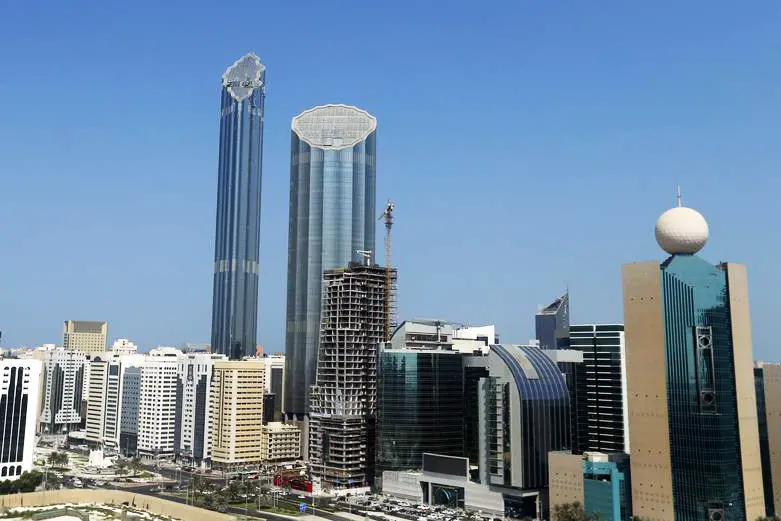PHOTO
JEDDAH - Since Q2 2013, average residential rentals in Abu Dhabi have seen sustained growth and during the quarter this trend continued with just over 1% increase, according to the Q2 2015 Abu Dhabi MarketView by global real estate consultancy firm CBRE.
It was, however, the lowest quarterly rise in two years. In annual terms, rental growth still looks substantial at around 10% growth, reflecting the relative strength of the market during 2014.
According to the report, luxury apartment residences within master planned communities remain in strong demand amidst relatively limited new supply.
This equated to a 14% increase in rental levels during the past year alone.
Within the mainland region, Al Reef Downtown has emerged as one of the preferred communities, reflected in the 3% rental growth achieved, significantly higher than the 1% increase in the wider market from the preceding quarter, the report revealed. During Q2 2015, 2 BR units in Al Reef Downtown were available from AED85,000-105,000/annum whilst 3 BR units are typically in excess of AED115,000/annum. Other similar types of residence within the mainland region are found to be priced substantially lower by 15% to 20%.
Mat Green, Head of Research and Consultancy UAE, CBRE Middle East, said "as has been the case historically, there appears to be a renewed focus on the development of high-end residences, particularly within the Investment Zone areas, with less focus on much needed affordable homes. This underlines a potential challenge for the wider market, with a continued mismatch between demographic trends and housing development."
The Abu Dhabi office market, on the other hand, remained subdued during the quarter, characterized by weak occupier demand.
"The quiet market atmosphere was in part due to the cyclical nature of the property market, but also reflective of the current economic situation, in a market which is principally driven by the Government and Oil and Gas occupiers. This was also compounded by signs of a slowdown within the Professional Services sector, again driven by reduced Government activity," added Green.
A two-tiered office market continues to prevail in Abu Dhabi, and whilst no rental change was recorded quarter on quarter the outlook for the secondary and prime markets differ markedly, according to the report. Average secondary office rents remained unchanged at around AED1,125/m2/year, reflecting a 2% reduction from the same period last year.
Between 2015 and 2018, roughly 1.45 million square meters of new office accommodation is set to be delivered across the capital. With the majority of new office supply expected to be secondary in terms of either location or quality, further rental deflation for inferior properties is anticipated in the short to medium term.
"Prime office rents also remained static, ranging from AED1,600-2,200/m2/year. However, despite the increasing uncertainty across the wider marketplace, we could actually see rental growth return for selected properties during the second half of 2015, with a number of key Grade A buildings currently edging towards full capacity," commented Green.
According to the report, a number of future drivers are seen to be key to Abu Dhabi's tourism market development, including long anticipated cultural developments such as the Louvre which is scheduled to open towards the end of 2016 / early 2017, and the Guggenheim which is tentatively expected to follow in 2018.
Reports from the Abu Dhabi Tourism and Culture Authority (ADTA) revealed a 20% increase in the capital's hotel guests during first four months of 2015 as compared to the same period last year. According to the ADTA forecasts, guest arrivals are expected to reach to around 3.9 million during 2015.
According to data from STR Global, Abu Dhabi's hospitality market has seen a relatively positive start to the year, with ADR's up around 4% year to date the same period last year. Whilst occupancy rates were down around 1%, overall performance is seen to be quite health given the slowdown in government activity. This has been aided by relatively constrained new hotel supply in recent years, a trend which will continue in the short to medium term with just over 5,000 new keys set to be completed by 2018.
"While Abu Dhabi's real estate market witnessed relatively steady conditions during the quarter, the sector is still somewhat vulnerable to the current oil price situation, particularly its potential impact on major occupiers in the Government and Oil and Gas sectors, and other related industries.
"That said the market situation is softened by the relatively constrained development pipeline. Around 34,000 new residential units will be completed up to 2018, notably down on the five-year average and a similarly tight pipeline also exists for new Grade A office supply, with only a handful of good quality office properties are expected to be delivered in the short to medium term. A similar story is also apparent for the retail and hospitality markets, with the pipeline of new supply lower than five year averages across both sectors, easing any potential fear of oversupply," Green added.
© The Saudi Gazette 2015





















